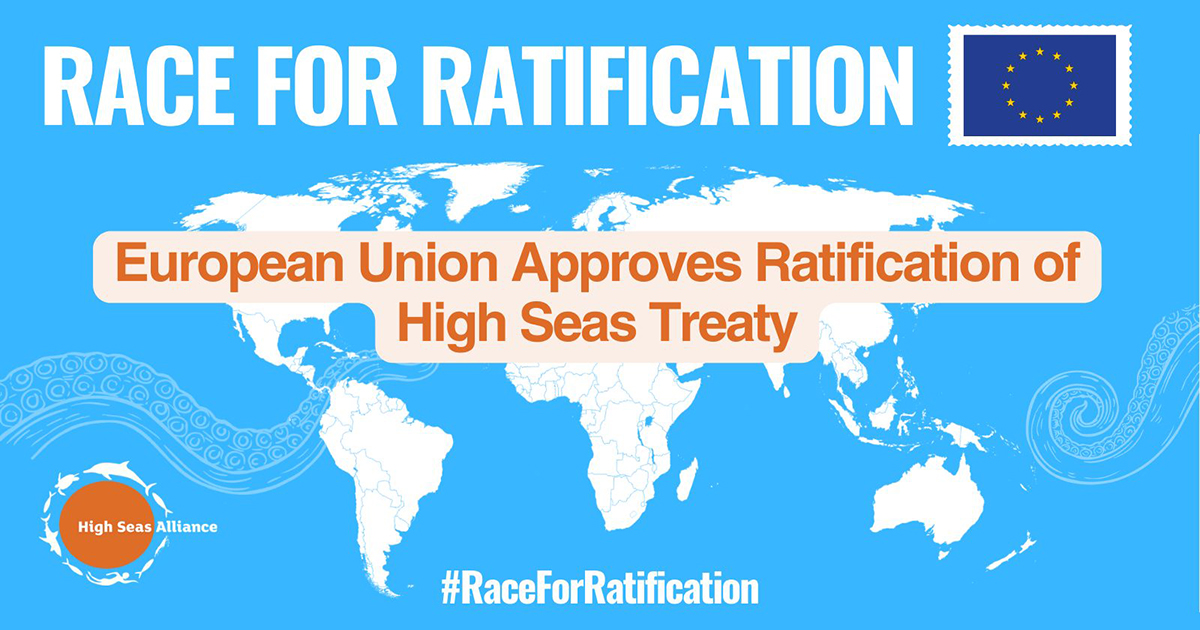The High Seas Alliance strongly welcomed the European Parliament’s vote in favor of the European Union (EU) ratification of the High Seas Treaty. Formally known as the United Nations Agreement on the Conservation and Sustainable Use of Marine Biological Diversity of Areas Beyond National Jurisdiction (BBNJ), the Treaty aims to protect marine life in areas beyond countries’ maritime boundaries, which includes the High Seas and the seabed called “The Area”.
“The High Seas Alliance applauds the EU for taking this key step in the #RaceForRatification. This progress provides a big boost to EU countries to accelerate the ratification of this important Treaty at a member state level and sends an important signal to the rest of the world that the EU is serious about prioritizing greater ocean protection with international law as a matter of urgency,” said Rebecca Hubbard, Director of the High Seas Alliance.
With this positive vote in Plenary, the EU has completed a key step in the process of approving ratification of the High Seas Treaty. The Parliament’s decision will be formally adopted by the Council, after which the EU will be ready to deposit its “instrument of ratification” at the United Nations (UN).
However, the EU has categorized the High Seas Treaty as a “mixed agreement” so, under EU law, the High Seas Treaty must be ratified at both the EU and at EU member state level. In addition, the EU and its member states often deposit their instruments of ratification of the High Seas Treaty at the UN together.
At least 60 countries must sign and ratify the High Seas Treaty for it to enter into force. To date, 89 countries have signed, thereby showing their commitment to ratify, and four countries have formally ratified the Treaty at the UN: Palau, Chile, Belize, and Seychelles. When the EU and its 27 member states deposit their instruments of ratification at the UN, it will have a significant impact on progress of the Treaty entering into force, although in this instance the EU itself does not count as an additional ratification in the total UN number.
Leadership by the EU members is now critical to ensure that the High Seas Treaty secures the 60 ratifications required for entry into force by the UN Ocean Conference in Nice, France in June 2025, as a key milestone for ocean action.






